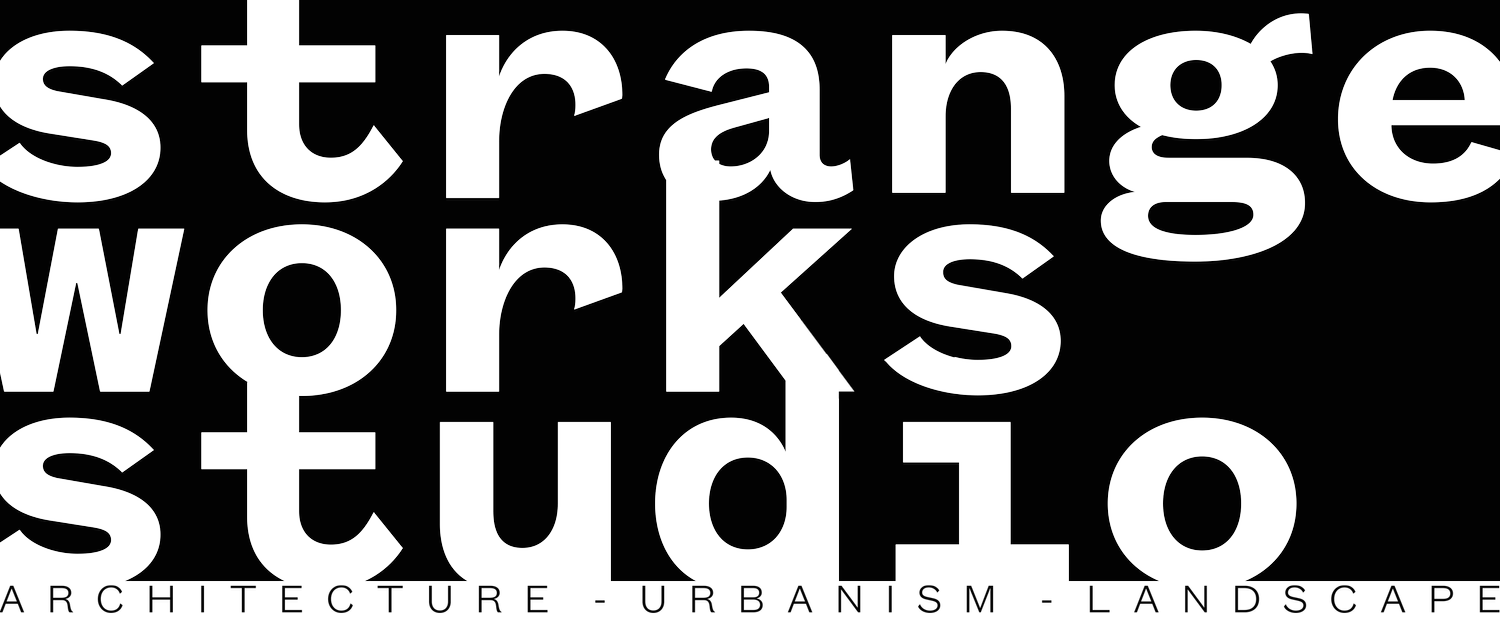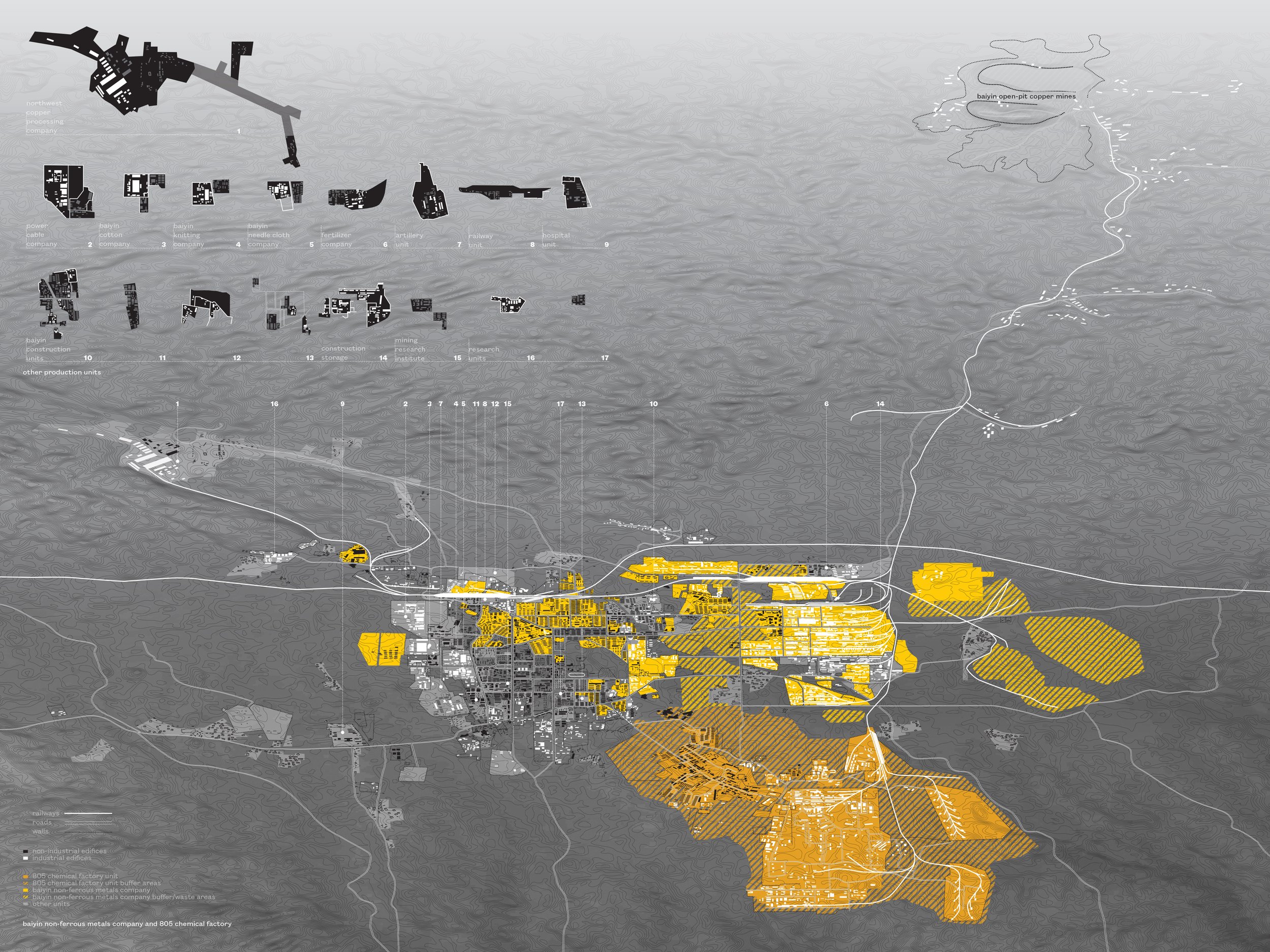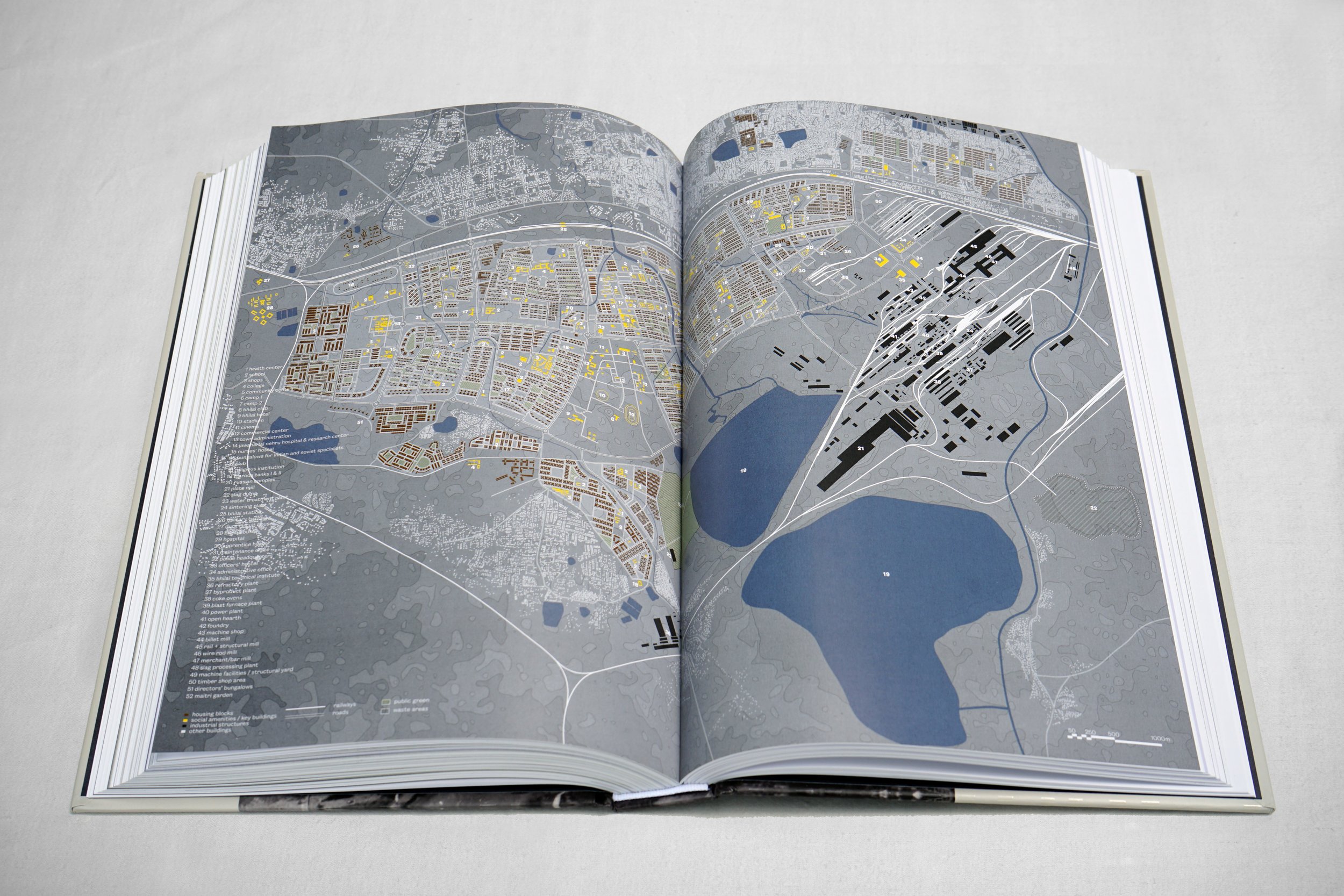Sponsor // The Bertram A. and Ronald M. Druker Charitable Foundation, Harvard Graduate School of Design • Status // Published 2019, Applied Research and Design
Monotown: Urban Dreams Brutal Imperatives examines the etymology and evolution of the Soviet ideal town and its legacy as a vehicle for the propagation of socialist space into post-colonial societies amid the developmental politics of the cold war. Conceived as corollary to the construction of industrial enterprises across the remote hinterlands of Eurasia, the monotown bound the territorial, economic, and ideological designs of the Soviet regime into a holistic, prescriptive urban vision where the lives of socialist subjects were indistinguishable from the logistical processes of which they were part. Through Soviet aid agreements with developing countries, these models were deployed into complex post-colonial environments combining with indigenous urban models and regional planning mechanisms to yield hybrid modernities and brutal transformations of society and the landscape. The book is a diachronic exploration of case studies across Russia, China, and India, layering local histories, in situ documentation, and archival research to shed light on unfolding transformational dynamics. How these towns weather the dissolution of their parent political strictures has become a central question shaping their current circumstances and their prospects for the future.
Awarded the 2020 John Brinckerhoff Jackson Book Prize for significant contributions to the study and understanding of garden history and landscape studies. Selected as finalist of the 2022 On the Brinck Book Awards at the University of New Mexico School of Architecture + Planning.
Monotown: Urban Dreams Brutal Imperatives















